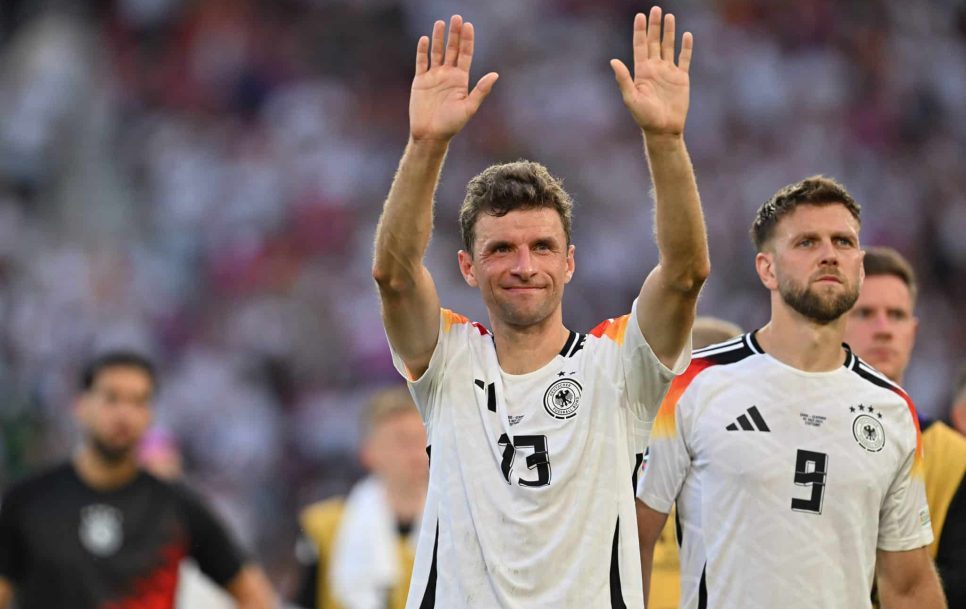6 things EURO 2024 will be remembered for
51 games, 117 goals scored, 2,681,288 spectators. 31 days, 24 teams, 10 venues. The Fußball-Europameisterschaft 2024 is now consigned to the history books. What will we tell our grandchildren in fifty years’ time?
Firstly – and this is quite possibly the most important piece of the puzzle – EURO 2024 marked the return of football to its purest roots. The previous Championship was held all over Europe and intertwined with Covid-19, making it difficult for many fans to attend. It did not generate a party-like atmosphere. Similarly, the two previous World Cups held in Russia and Qatar have to be marked with an asterisk.
Not this time. Germany shares a border with 8 of the 24 participants, and being in the centre of Europe, it is quite possibly the most accessible country via plane. Many had not partied like this since 2016; the Netherlands, who missed out eight years ago, last had a chance to be a part of something like this a decade ago. Many forgot how special a major tournament can be, and Germany reminded us all. It was Sommermärchen all over again, but Germany did not win back in 2006 and again in 2024.
When coaches, players, or fans use the old cliché “the best team won”, what does it mean? Per se, the winning team is indeed the best. But was Greece the best team in Europe in 2004? Or, if Manchester City have set the benchmark in Europe for the past say, five years, how come they have won the Champions League just once? Football can be a cruel game decided by (very) fine margins.
This is why, when the best team actually wins a major tournament for once, it is all the more enjoyable. Make no mistake, Spain was the team of the tournament; they not only went seven for seven (with just one of those games going to extra time), but they took down the best teams of EURO 2020 (Italy and England) and the best European teams of the 2022 World Cup (France and Croatia). Plus the resurgent host Germany. They worked hard for success.
Spain, for years synonymous with tiki-taka, played proactive football with high pressing and quick transitions, making the most of their mercurial wingers Nico Williams and Lamine Yamal. Amongst the contenders, they stood out; France and England, the two teams favoured before the tournament, chose a pragmatic approach despite all their attacking riches. They tried to do as little as possible and still achieve the maximum result.
Was it the right call? Results-wise, both made the top four, so the plan did not fail entirely. But France never really got going, even when faced with elimination in the semi-final vs Spain; they were second-best on the day. As for England, it felt that despite all the little tweaks, they did not find the right formula. Subbing out your captain – the star striker – with half an hour to go in the final speaks volumes.
Gareth Southgate has stepped down as England boss despite reaching the final while Didier Deschamps will remain with backing from the French FA. Which is the right call? Time will tell. Kylian Mbappe broke his nose 80 minutes into the tournament and was never the same – losing your star player, possibly the best footballer of the tournament, would hurt any team. He wanted to play and Deschamps kept him in despite obvious limitations.
But Mbappe was not the only one to take his country “hostage” that way. Cristiano Ronaldo started all five games for Portugal at 39, with his impact nowhere near the standards he himself expects. Ronaldo admitted he will not be back for EURO 2028, but all points sign to him wanting to play a part in the 2026 World Cup – the one trophy missing from his cabinet.
Luka Modric, 38, and Pepe, 41 (!), have not ruled out 2026 either while some legends said their goodbyes. Toni Kroos celebrated his 34th in January and, honestly, would walk into any team in the world, but the midfielder hung up his boots. Thomas Müller (34) was already a bit-part player at EURO 2024 as were Olivier Giroud (37) and Xherdan Shaqiri (32). Players who have delivered for their countries time and time again.
Speaking of delivering, the feel-good story of the tournament was provided by Georgia. A nation of 3.7 million people making their major tournament debut, not much was expected from them. However, their resilience and fighting spirit shined through from the first game vs Turkey, when they took the risk of sending their goalkeeper up front in the dying moments (and getting punished because of it), knowing all well that goal difference could be important later. It did not matter.
A 1-1 draw vs Czechia in the second round should have sent them packing by every logical perspective, but an inspired 2-0 win over Portugal helped Georgia seal third place and a spot in the knockout stages. They even led against Spain – one of just two teams in the tournament to do so! – before losing 1-4 and going home. Back home, they were welcomed as heroes, and with reason.







